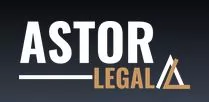- within Litigation and Mediation & Arbitration topic(s)
- in United States
- within Litigation and Mediation & Arbitration topic(s)
- with Senior Company Executives and HR
- in United States
- with readers working within the Media & Information and Metals & Mining industries
Freezing orders are complex legal instruments. Unsurprisingly, most laypersons are confused about the process.
If you are seeking to impose a freezing order, or you have been served one, you will need professional legal advice and representation.
What is a Freezing Order?
A freezing order, otherwise known as a Mareva order, is a type of injunction that preserves a person's assets. It prevents a person from using assets that were allegedly illegitimately obtained, thereby protecting the court's process.
The reasoning behind the orders are that the law prohibits
people from profiting from illegal means. The order had its genesis
in the decision of Mareva Compania Naviera SA v International
Bulkcarriers SA
The Mareva [1980] 1 All ER 213.
Who can apply for Freezing Orders?
The following parties can apply for a freezing order:
- The party claiming to be the victim;
- Australian Securities and Investment Commission (ASIC); and
- A Crime Commission.
How to apply for a Freezing Order?
You can apply a freezing order by making an ex parte application to the Supreme Court. You will need to provide evidence as to why you believe the respondent's assets should be frozen. This is often done without notice to the respondent to prevent them from dealing with the assets or money laundering before the orders are made.
You must prove the following to obtain a freezing order:
- You must have a good arguable case against the respondent, meaning it must be 'one which is more than barely capable of serious argument, and yet not necessarily one which the judge believes would have a better than 50 per cent chance of success' (Ninemia Maritime Corp v Trave GmbH & Co KG [1984] 1 All ER 398 at 404). In other words, you must raise a fairly arguable point. You must provide evidence through affidavits;
- You need to prove that there is a real risk of the respondent concealing, disposing of, or removing its assets from the jurisdiction. A real risk means one that is more than suspicion. You must provide evidence to support this.
If a freezing order is made, the respondent will be prevented from using their assets. You will then be required to serve copies of the orders to banks so that the respondent cannot access and use their accounts or credit cards.
You will also need to serve the orders to the respondent. The matter will generally be listed in court within a few days, providing the respondent with an opportunity to request modifications to the orders.
What Assets Are Frozen?
Generally, all assets are frozen including, but is not limited to:
- Funds in bank accounts;
- Term deposits;
- Share portfolios;
- Real property;
- Valuables;
- Motor vehicles.
These assets cannot be sold, mortgaged, leased or otherwise dealt with unless the orders allow an exemption for this.
The orders apply to assets within Australia and overseas. This is necessary to address situations where the respondent is involved in transnational business activities.
Additionally, freezing orders can freeze the assets of third parties. This may occur in situations where the third party, such as a spouse, has possession or control of the defendant's assets.
How Long Do Freezing Orders Last?
Freezing orders have an expiry date which is usually a few days. The case will be listed at court for the respondent to appear and the court will decide whether the expiry date will be extended or the freezing orders revoked.
If the orders are extended, they will last as long as the case proceeds. This can be years if the matter continues for that period of time.
Can I Spend money when my Assets are Frozen?
Freezing orders will allow you to access assets as long as they are for legitimate purposes. For example:
- Reasonable ordinary living expenses: You can access assets to afford your living expenses such as groceries and loan repayments. The order will prescribe a set amount that you can withdraw per week. If the amount is not enough, you can negotiate it.
- Business costs: If you own a business, you can withdraw funds to meet the costs incurred in the ordinary and proper course of your business.
- Contractual obligations: You can withdraw funds to meet any reasonable and legal contractual obligation you had before the order was made.
Further, you can make an application to the Supreme Court to vary the orders to increase the amount of money you are allowed to use.
How to Challenge a Freezing Order?
You can challenge a freezing order if you prove one of the following:
- You can pay the entire amount it is alleged you took;
- The claim is not strong enough to justify the orders; or
- The applicant did not fully or frankly disclose information to the court.
Further, if the proceedings can be settled, the freezing order will be revoked.
Will I Be Prosecuted?
Typically no. A freezing order is a civil order where there is a different standard of proof than criminal proceedings. Further, not all freezing orders are sought due to criminal conduct.
Despite this, if there is an allegation you have committed any criminal act, you will not have the benefit of the right to silence in civil proceedings. A leading criminal lawyer should be retained to advise you on how to apply for an exemption or a certificate against self-incrimination.
The content of this article is intended to provide a general guide to the subject matter. Specialist advice should be sought about your specific circumstances.


